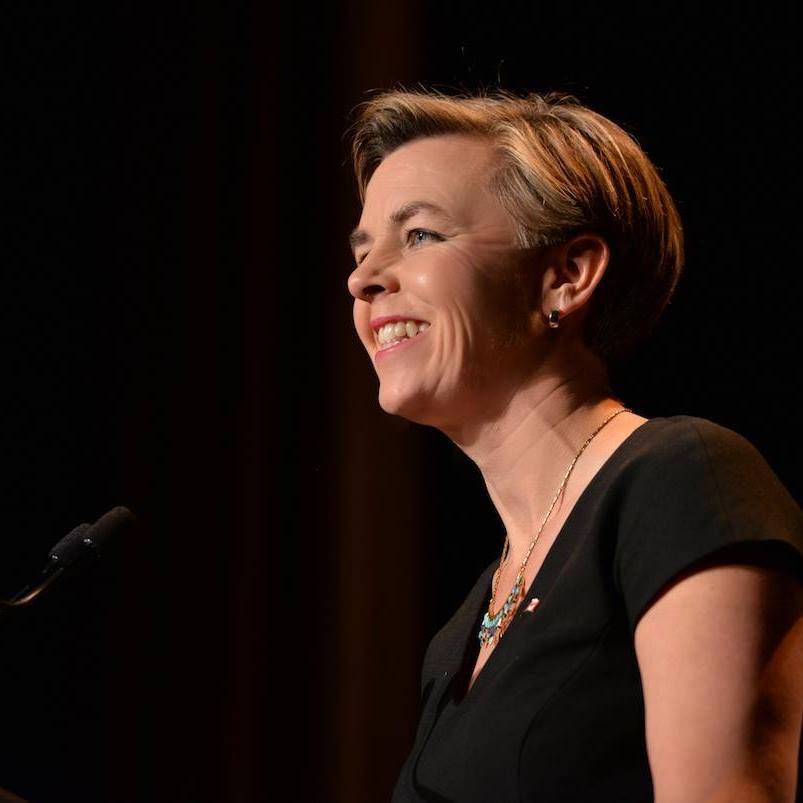Breaking
Leitch as PM would undo Liberal plan to legalize recreational cannabis

Marijuana is a “dangerous drug,” Conservative leadership hopeful Kellie Leitch said Tuesday as she promised to undo the Liberal government’s efforts to legalize it, should she become her party’s leader and eventually prime minister. (Photo: Kellie Leitch/Facebook)
OTTAWA — Marijuana is a “dangerous drug,” Conservative leadership hopeful Kellie Leitch said Tuesday as she promised to undo the Liberal government’s efforts to legalize it, should she become her party’s leader and eventually prime minister.
There are too many public health and safety concerns surrounding marijuana for it to be legal, Leitch told The Canadian Press as the government prepares to table legislation later this week to legalize and regulate its sale.
Political Ottawa has been buzzing for weeks about what will be in the bill, expected Thursday. One key task-force recommendation that the government could act on is imposing an age limit of 18 on those who seek to buy it.
“Look, I will be reviewing it, but I’m a pediatric orthopedic surgeon — I have personal views on this that I feel very strongly about,” Leitch said in a roundtable interview.
“I don’t think that we should be legalizing this drug; this is a dangerous drug and I don’t want it in the hands of children.”
Scientific evidence shows the drug can have damaging effects on the brains of those under the age of 25 and should only be available from pharmacies for patients with prescriptions, Leitch added.
“I have young people come to me as a physician and say ‘You know, I don’t understand, Dr. Leitch — I’m told not to do drugs, but can I do this drug now?” she said. “These are the kinds of messages Canadian parents do not want portrayed to their kids.”
In an August submission to the federally appointed task force on marijuana, the Canadian Medical Association recommended a minimum age of 21, as well as limits on quantities and potency for those aged 21-25 to discourage use and sharing among underage friends.
The driving purpose of the Liberal government’s plan is to address Canada’s “very high rates” of cannabis use among young people —among the highest rates in the world, Health Minister Jane Philpott said Tuesday.
Criminalizing cannabis has not deterred its use by young people, Philpott said in an interview. Other products known to be harmful, including alcohol and tobacco, are available with restrictions for legal consumption, she added.
“As we legalize cannabis and make a decision about what age it can be accessed, we know that regardless of the age of the person consuming, that it is a product that has potential risk associated with it,” Philpott said.
“That’s why we are taking a public health approach with a strong focus on public education.”
One of the current challenges is a shortage of information on products like cannabis, she added, insisting that legalization should in no way be taken as a signal that pot can be used with impunity and without an understanding of the potential risks.
“This is a way of responding to the reality of the fact that rates of use are extremely high in young people and we need to take an approach that acknowledges public health, acknowledges the approach of criminalization has not deterred young people from using it,” Philpott said.
Benedikt Fischer, a University of Toronto psychiatry professor and senior scientist with the Centre for Addiction and Mental Health, said there are clear risks and harms associated with cannabis, but a strong upside to legalization from a public health perspective.
Trying to restrict its use to people aged 25 and up will only drive young people to the black market, he added.
“What will those people under 25 do if they are not allowed legal access?”
Chuck Rifici, a co-founder of Canada’s first publicly traded marijuana company who now chairs National Access Cannabis —a company that works with patients navigating the medical marijuana system — said Tuesday said he will look at whether the government acts on task force advice, allowing mail-order marijuana sales.
Selling through the mail would help the government achieve its election promise on pot, Rifici said, noting it also ensures Ottawa is not beholden to provincial distribution systems yet to be established.
“If it is hard to access legal product, like any controlled substance, if there’s not a legal option, people will turn to another option,” Rifici said, a former treasurer for the Liberal party’s national board of directors.
“I think it makes more sense to make it easier for Canadians to access safe, tested, federally licensed product.”
The task force, which issued a 106-page report in December, also recommended storefront sales to people 18 and older with personal growing limits of four plants per person and a 30-gram limit on personal possession.






















malcolmkyle
April 12, 2017 at 6:42 AM
Just another big pharma shill.